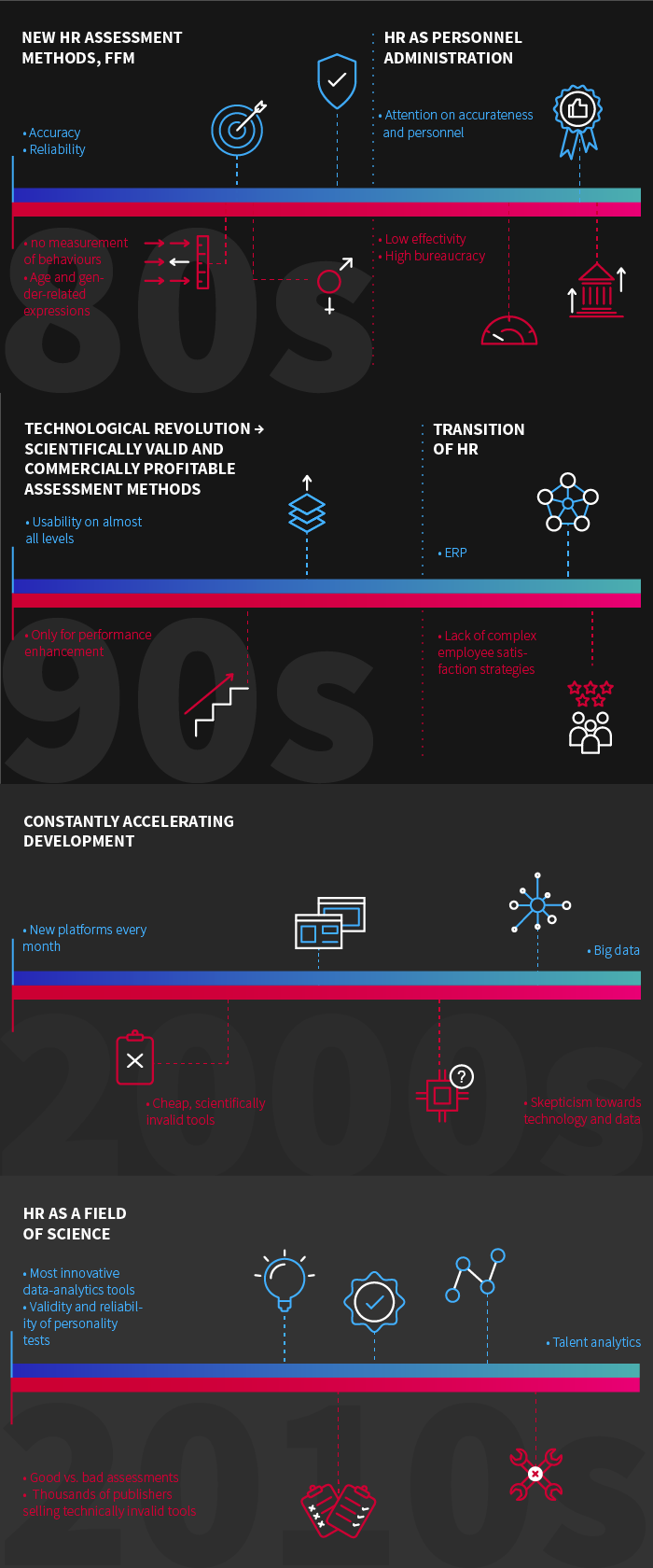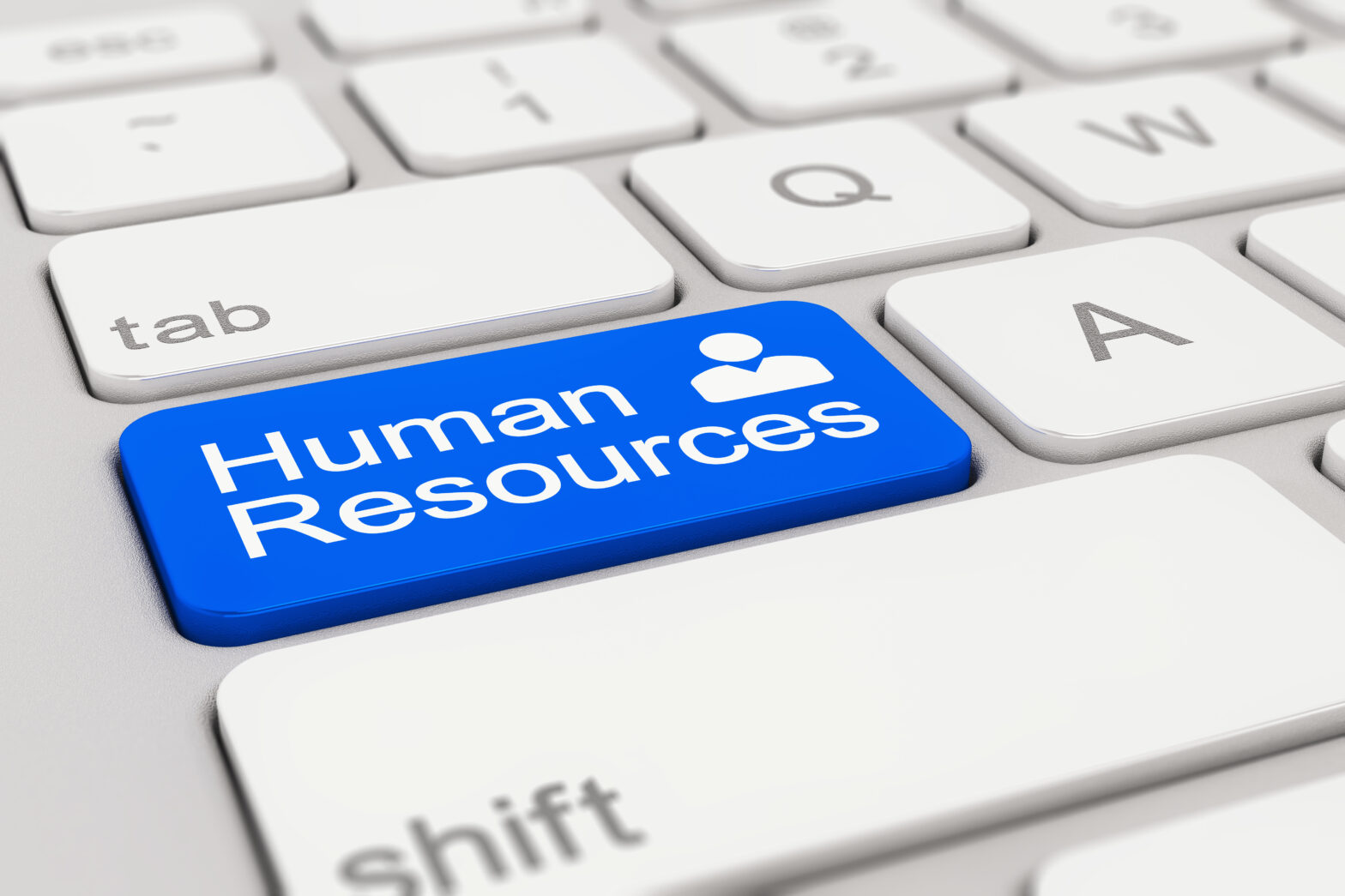The number one keyword most businesses should be aiming to implement across their company is efficiency. Making a process faster, easier to manage and more accessible to the worker should be a priority of any entrepreneur, particularly as we move into a faster, technology-driven landscape.
A growing number of top companies are using professional personality assessment and big data as a tool for personnel decisions, which indicates that more and more HR experts understand its significance. Based on 30 years of research in the field of HR assessment, with the usage of digital tools it has evolved into a predictable and accurate solution. Talent analysis is also gaining more ground with the development of new assessment methods, improving recruiting and supporting leadership management.
HR assessment had a merely administrative role at the beginning, but now it has evolved into a valid scientific field with a proven business impact and a determinative player in management decisions. And the basis for these decisions became personality in a growing number of cases. A majority of companies have now acknowledged that personality assessment and its pairing up with digital solutions are crucial for HR decisions.
The last 30 years of assessment had a very long way to go: in the 80’s accuracy and reliability was established, but methods were inefficient and behaviour was not measured. In the 90’s usability was achieved on all levels and basic ERP systems were used. But all of these were focusing on performance enhancement and employee satisfaction was not a factor to be considered. At the beginning of the 2000’s new platforms were born every month and big data was starting to gain attention. But most of the solutions have been inadequate, and that was not supporting trust towards implementation of technologies in HR. In the last decade, data-analytics has gained ground with innovative platforms. One of the main, most exciting fields is now talent analytics, but it became difficult to find providers, using scientifically valid methods and sufficient data.
Today at hiring, a well-structured personality test evidently beats any interview three times: a study by Hogan Assessments research division (HRD) shows a 0.2 correlation coefficient between an unstructured interview and the actual capability of a potential employee – this grows to 0.4 with a structured interview, to 0.54 with a mental ability test, and to 0.6 with a personality test. Even so, 90 per cent of corporations still rely on unstructured interviews and CV-s.
A real-life example: a large logistics company hired 2200 employees using a recruiter and 2200 employees using the Hogan Personality Inventory (HPI). Those employees, who were not screened by Hogan, were two times more likely to be fired for improper conduct, four times more like to be fired for fighting, five times more like to be fired for insubordination, and ten times more like to be fired for theft.
Studies also reveal that companies that invest in talent analytics, have improved their recruiting by two times and leadership pipeline by three times. Already 57 per cent of HR departments increased their spending on analytics, and they tend to focus on data-based, objective personnel decisions.
Personality assessment, big data and talent analytics are decidedly the future of HR and every business, as incredibly powerful predictive and descriptive tools for personnel decisions.
According to Dr. Robert Hogan, founder of Hogan Assessments, “The most determinative trend in HR is talent analytics. On the one hand, it makes it possible to make personnel decisions based on facts and not impressions. On the other hand, most HR professionals don’t make a difference between data derived from good and bad assessments, which gives them the illusion of bringing decisions based on facts – the problem is, that from wrong data, only wrong decisions can be made. Grounded in more than four decades of validated research, Hogan Assessments were the first to scientifically measure personality for business.”
Usage of data is now crucial for people management, because well-established tests are backed with thousands of experiences. Biased personal impressions are now insufficient and cost businesses too much.







